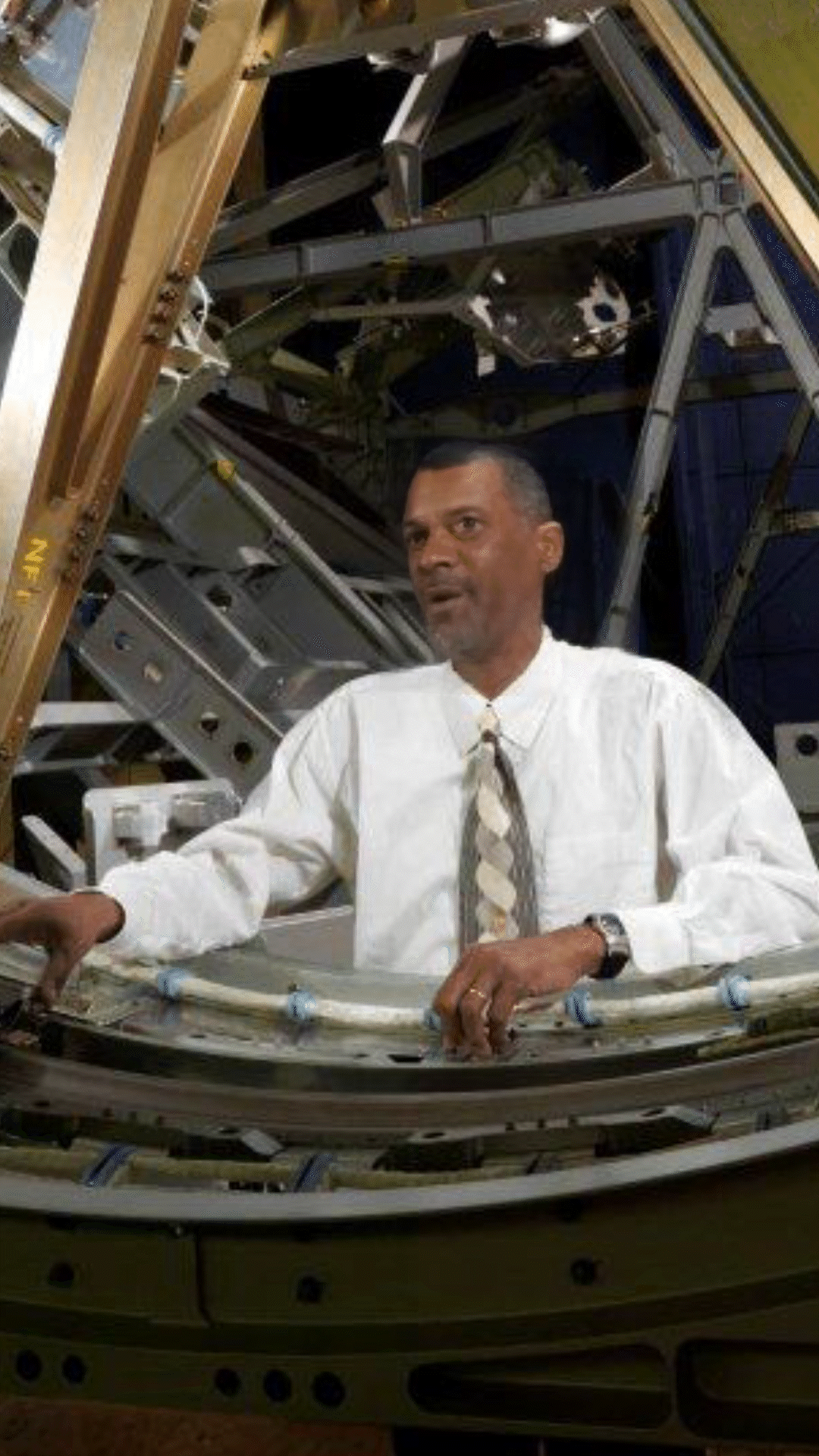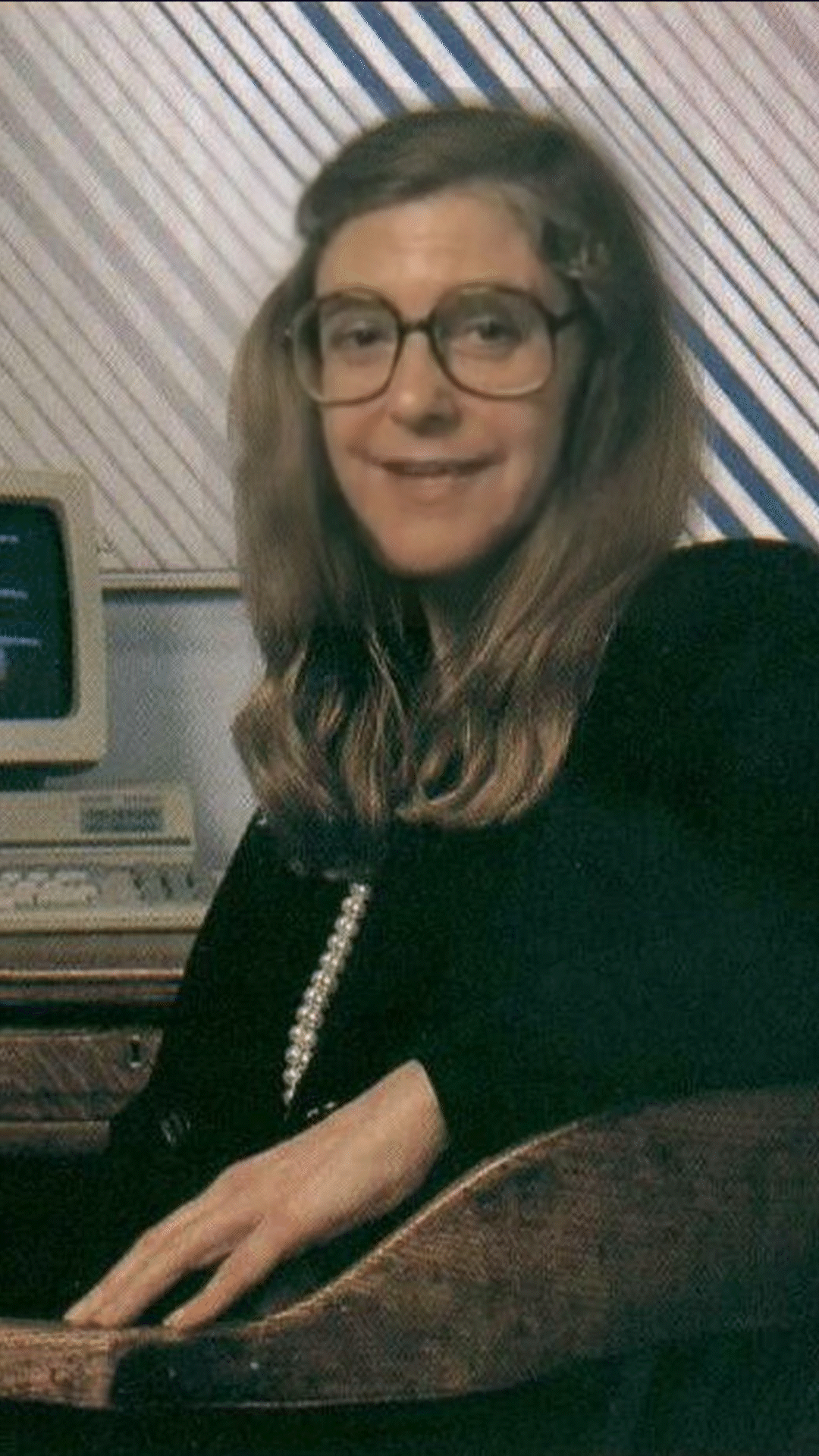
THE
CACOPHONY
PROJECT
Hear Yourself in Space
JUMP TO
PROJECT TYPE
3 week group project
PROGRAMS & TOOLS
Figma
After effects
Premiere Pro
Google Colab
MY ROLE
Experience Designer
Animator
Representation Matters.
How can you imagine yourself amongst the stars if you have no idea what that looks like?
The Ask
Encourage the pursuit of space careers for school-aged minority individuals.
Opportunity
We can change the adopted perception of space careers = astronauts.
Solution
To create a city-wide instillation highlighting the unheard heroes of space.
Background
When people think of space, they think of the traditional American heroes; your Neil Armstrongs, Buzz Aldrins, and even now people like Jeff Bezos are making a name for themselves in space.

While all of these white men are going to space, only 3% of doctorates in astronomy are coming from people with underrepresented backgrounds.
With Gen Z starting to enter the workplace, there is a chance for a shift. The next generation of work is the most diverse generation to date. Currently, one in four Gen Z members identifies as Black, Hispanic, Asian, or another race or ethnicity.

However, there’s an issue: Gen Z is skeptical about the utility of space. Currently, they view space like many others do; reserved for the rich and the white. A survey from the Harris Poll found 80 percent of Americans felt recent space launches by Blue Origin and Virgin Galactic were billionaire ego trips. Cynicism was highest among Gen Z respondents aged 18 to 24 years old.
Realization
Gen Z doesn’t know where they fit into the future of space.
Gen Z needs to be convinced that not only does the industry need their perspectives, but that they would be valued in the industry.
Opportunity

We can change the adopted perception of space careers being reserved for astronauts by highlighting the stories of underrepresented individuals across various space-related departments who have made great strides in space advancement.
Solution
We developed the Cacophony Project.
.png)
The Cacophony Project (TCP) is an advocacy campaign, supporting marginalized young people pursuing education and careers related to space exploration. TCP works with educators and science organizations to tackle institutional barriers preventing diverse talent from entering and succeeding in STEM fields. The project would also facilitate future opportunities for professional development, mentorship, and sponsorship.
We wanted to give others the opportunity to hear themselves in space by showcasing stories of space advancement from people who come from similar backgrounds. This shows our Gen Z audience that their voices can and are needed to shape the future of space.

What better way to do that than to have them speak for themselves! Utilizing deepfake technology, we were able to give these heroes of space a voice once again.



These guerilla style installations will be scattered across Miami, located below the Space Coast, a hub for aerospace institutions like NASA. Each installation is activated through a user scanning interactive components with their phones.
Christine Darden
Guy King
Margaret Hamilton
As the installation plays, a microsite is opened on the user’s phone
The homepage explains the purpose and function behind The Cacophony Project, while hinting encouraging users to discover the unheard heroes for themselves.
The microsite also contains a map of all the individual installations, as well as an archive of the hero videos.
Users are encouraged to join the efforts of The Cacophony Project by participating as a student or mentor, and by donating.
Key Components
Historically excluded individuals are recognized and celebrated as space heroes.
Diverse space careers are highlighted and represented as options to a "pre-career decided" audience.
Individuals are supported beyond the installation through opportunity, mentorship, and education.
Reflection
TCP has the opportunity to evolve and grow into long-term program with the potential to partner with schools or other established STEM programs. As TCP expands, we can start bringing in living heroes, people who can actively use their voice to teach underrepresented students that they have a place in space. This is such an important topic and I would like to keep pushing the conception and functionality of a space career program itself, as it can live under the "minorities in STEM" movement.
On a more personal (and raw) note, I never want to work with this deepfake software again. Even though it required a bare minimum level of coding to set up, my lack of coding knowledge made it nearly impossible to troubleshoot when things went wrong. And boy did they go wrong. I'm luck enough to live with my software engineer partner, who graciously stopped most of the crashing with his big boy GPU setup. Thanks a ton Sean :)